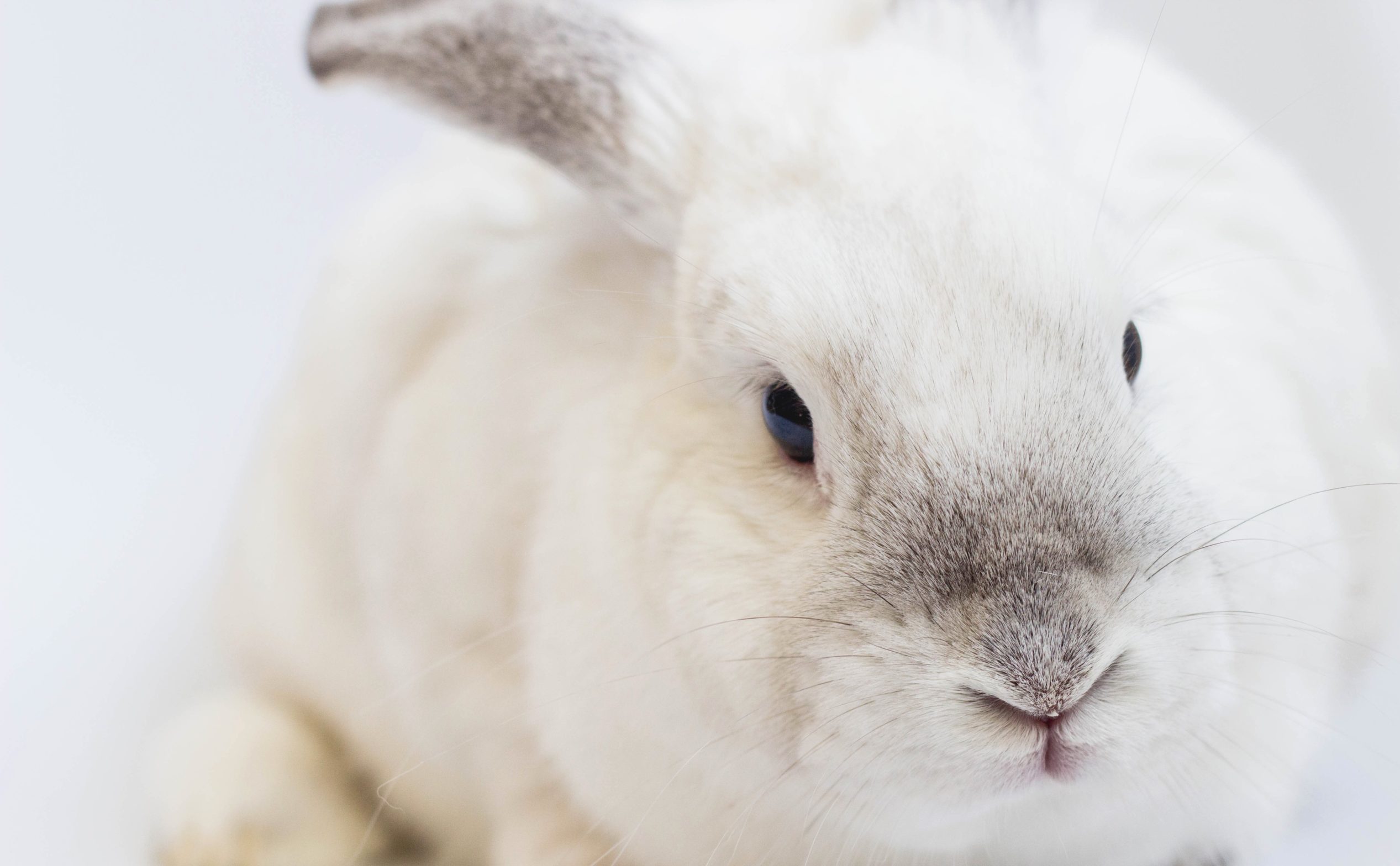
Rabbit Care
Rabbits are very easy to love, but not quite as easy to care for. Rabbits are very lovable, social companions but have many important needs that must be met to ensure they are able to live long, happy lives. When introducing a rabbit into your home, families must be prepared to tend to their very specific care requirements for the duration of their lifetime (The average lifespan of a rabbit is 10 years!).
Indoors or outdoors?
Domesticated rabbits should be kept indoors with protection from weather elements and predators. The sight or sound of a nearby wild animal can cause rabbits a large amount of stress when they are housed outdoors.
Caged or Free to Roam?
Whether you decide to house your rabbit in a cage or let them free roam your home, you must be sure that everything is rabbit proof! Caged rabbits should have the opportunity to leave their cage for at least a few hours a day. In small habitats, it is very difficult for rabbits to carry out their normal day to day behaviors. These include running, playing, and “binkying”.
A few helpful tips to keep your rabbits safe in the home:
- Keep any electrical cords tucked away and safe from chewing
- Keep plants and flowers out of reach
- Use baby gates at the top of stairs and playpens to keep your rabbits confined to certain areas in the home
- Allow access to lots of chew toys in attempt to redirect them from chewing household items (This also helps to wear down their teeth as they continuously grow throughout their lifetime!)
Alone or With a Friend?
Rabbits are very social animals, and like us, can suffer from loneliness. Though there are some exceptions, most rabbits are much happier with a friend. Keeping rabbits in pairs allows them to keep each other busy and entertained while owners are busy. Once a pair of rabbits are bonded, they will partake in things like grooming, exercising, and playing.

What Does a Rabbit Eat?
Fresh, clean drinking water and a good quality hay and grass should make up the majority of a rabbit’s diet. Rabbits should be offered an unlimited amount of timothy hay as the main source of their diet due to its high source of fiber, which is critical to maintaining a healthy digestive tract in rabbits. Rabbits should also be offered a daily feeding of fresh vegetables in small amounts. Pellet food can be offered to rabbits in small amounts, but owners must be careful to limit the amount fed, as overfeeding pellets is a very common cause of obesity and diarrhea in rabbits.
Fun Fact: Carrots should be fed to rabbits in very small amounts, as they are high in carbohydrates and can upset the GI bacterial flora.
Keeping Rabbits Clean
Rabbits are very clean animals and are often compared to felines. Rabbits self-groom and will groom each other if they are kept in a bonded pair. They prefer a clean and tidy environment to live in, and can even be litterbox trained. Cages should be spot cleaned daily, along with litterboxes and litter should be changed completely as required. Any old food should also be removed at this time and replaced with fresh food. Bowls and water dished should be cleaned once a day to prevent any bacteria buildup. Keeping a rabbit’s cage clean will keep them much happier!
Providing Enrichment
Providing enrichment for pet rabbits is a very important step in being a great rabbit owner. Tunnels, hides, and houses should be placed in your rabbit’s cage or in the area they are kept in to allow them places to hide and feel comfortable. Toys and objects should be offered to rabbits to allow them to manipulate, investigate, chew, allow digging and scent marking, and encourage play.
Spaying and Neutering
Spaying female rabbits is especially important because it prevents a very common malignant cancer in rabbits called uterine adenocarcinoma. Unfortunately, this occurs in approximately 80% of unspayed females over the age of 2. Spaying is also crucial in a home with males and females living together to prevent pregnancy. In male rabbits, some potential issues include testicular abscesses from bites, hematomas, and testicular cancer. Male rabbits also have a tendency to have aggression issues around 8-18 months of age, and can also start spraying to mark territory. All of these issues can be prevented by getting your rabbit neutered.
About the Author Abi Cushman is a veteran house rabbit owner and a contributing editor of My House Rabbit. When she’s not writing about bunnies for My House Rabbit. (2019, August 25). How to care for a pet rabbit. My House Rabbit. Retrieved July 19, 2022, from https://myhouserabbit.com/rabbit-care/care-pet-rabbit/
Vsadmin. (2022, April 6). Beginner’s Guide to Pet Rabbit Care. VetCare Pet Hospital. Retrieved July 19, 2022, from https://www.vetcarepethospital.ca/beginners-guide-to-pet-rabbit-care/
Photos from Meagan Leblanc


